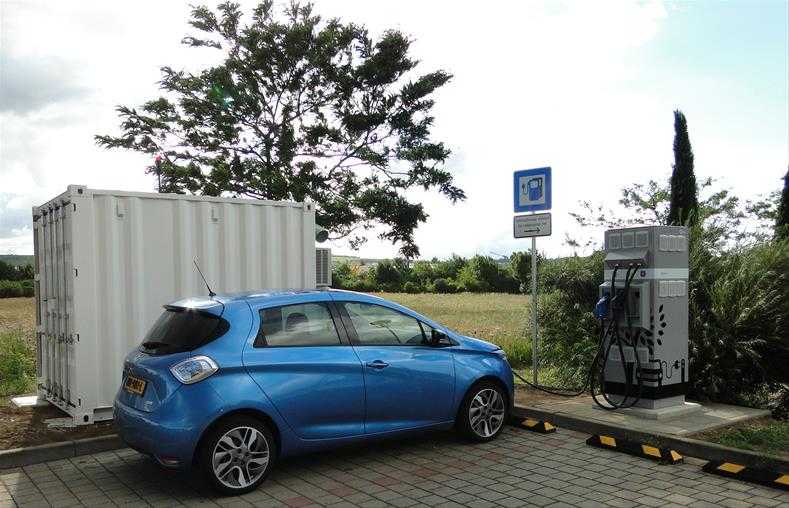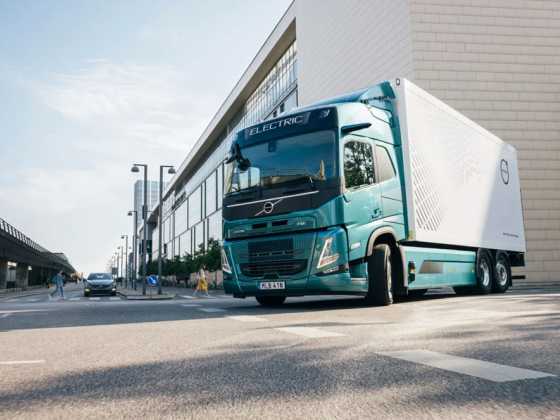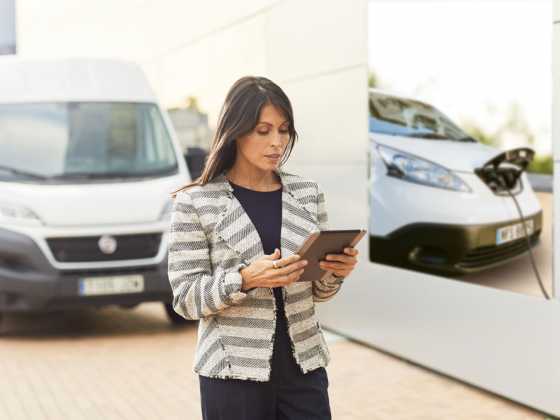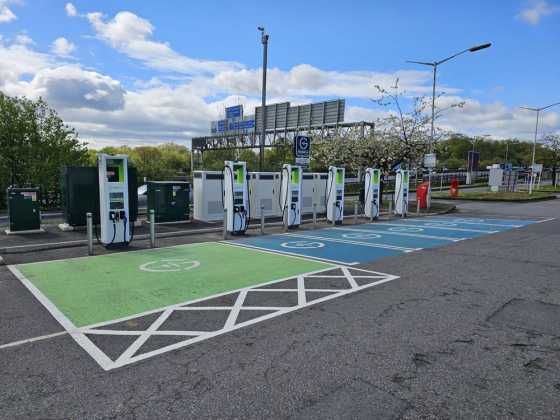EV charging on highways with second-life batteries

Renault and Connected Energy have installed two quick-charge stations based on the innovative E-STOR energy storage technology on highways in Belgium and Germany.
The E-STOR technology developed by Connected Energy uses second-life batteries from Renault electric vehicles.
Batteries are recharged at low power, and the stored energy is then released at high power. It thus becomes possible to offer electric vehicle charging services in locations where constructing a high power connection to the power grid would be very costly.
E-STOR is set to contribute to the development of a network of quick-charging stations in Europe.
Matthew Lumsden, managing director of Connected Energy, commented: “We are developing a range of E-STOR systems, some, like the two installed in Belgium and Germany, are designed specifically to enable lower cost more sustainable electric vehicle charging so it’s very great to see these in action.
“We are now talking to several parties about projects in the UK and Europe and look forward to wide scale roll out in coming months.”



